VIDYABEN SHAH & MANUBHAI SHAH
Welfare Work of Vidyaben Shah
Winner of the National Award and Kalpana Chawla Excellence Award for Social Work
Vidyaben Shah is a distinguished social worker known for her selfless social work, activism and public service in the betterment of Indian society for nearly eighty years. Her activities are notably marked by a quiet unassuming demeanour, a tireless dedication, where work is a form of worship, without any thought for any kind of personal gain. She has held several leading positions in the field of social welfare since the 1930s. Over the decades, she has continued to make extensive contributions in the fields of Child Welfare, Education, Women and Family Welfare, Welfare of the Disabled, Civic Administration, Fine Arts and Culture, Senior Citizens Welfare, and other relief and social work.
A lot of Vidyaben’s work has not even become widely known. In the middle of a summer afternoon in Delhi, she can be seen standing in front of a bulldozer in a residential colony. On another day she may be getting a barrier removed which was threatening the foundation of a building and no one else was daring to help. On hearing of child abuse, she would contact parents or teachers and fight for the child. She has been seen taking an initiative after reading a newspaper article to get justice for women who were victims of abuse. She would not rest until a power or water or drainage problem was solved be it in a basti or a housing colony, often providing highly innovative solutions such as rainwater harvesting and landscaping community parks, showing the same enthusiasm as at the age of 21 while living in a hostel she had become surrogate mother to many young girls from Africa who had been sent by their parents to study in Bhavnagar (Gujarat). The narrative being endless, she appears to be the quintessential ideal Indian woman.
In 1948, Vidyaben was appointed the first Honorary Magistrate for Juvenile Courts in Rajkot, a post she held for 8 years.
Child WelfarePioneering the Bal Bhavan Movement in India
A pioneer in the field of child welfare, Behnji or Vidyaben, as she is affectionately known, initiated the Bal Bhavan movement [1] by establishing in Rajkot the first ever Bal Bhavan in India, which was to become a harbinger of the entire Bal Bhavan Movement throughout the country. In 1955, Prime Minister Pandit Jawaharlal Nehru visited Rajkot accompanied by Indira Gandhi who laid the foundation of the Bal Bhavan building. Vidyaben still remains the Chairperson of Bal Bhavan at Rajkot[2]. In 2007, through her concerted efforts, the New Bal Bhavan was set up in Rajkot with a highly modern Arts and Science Centre for underprivileged children.[3]
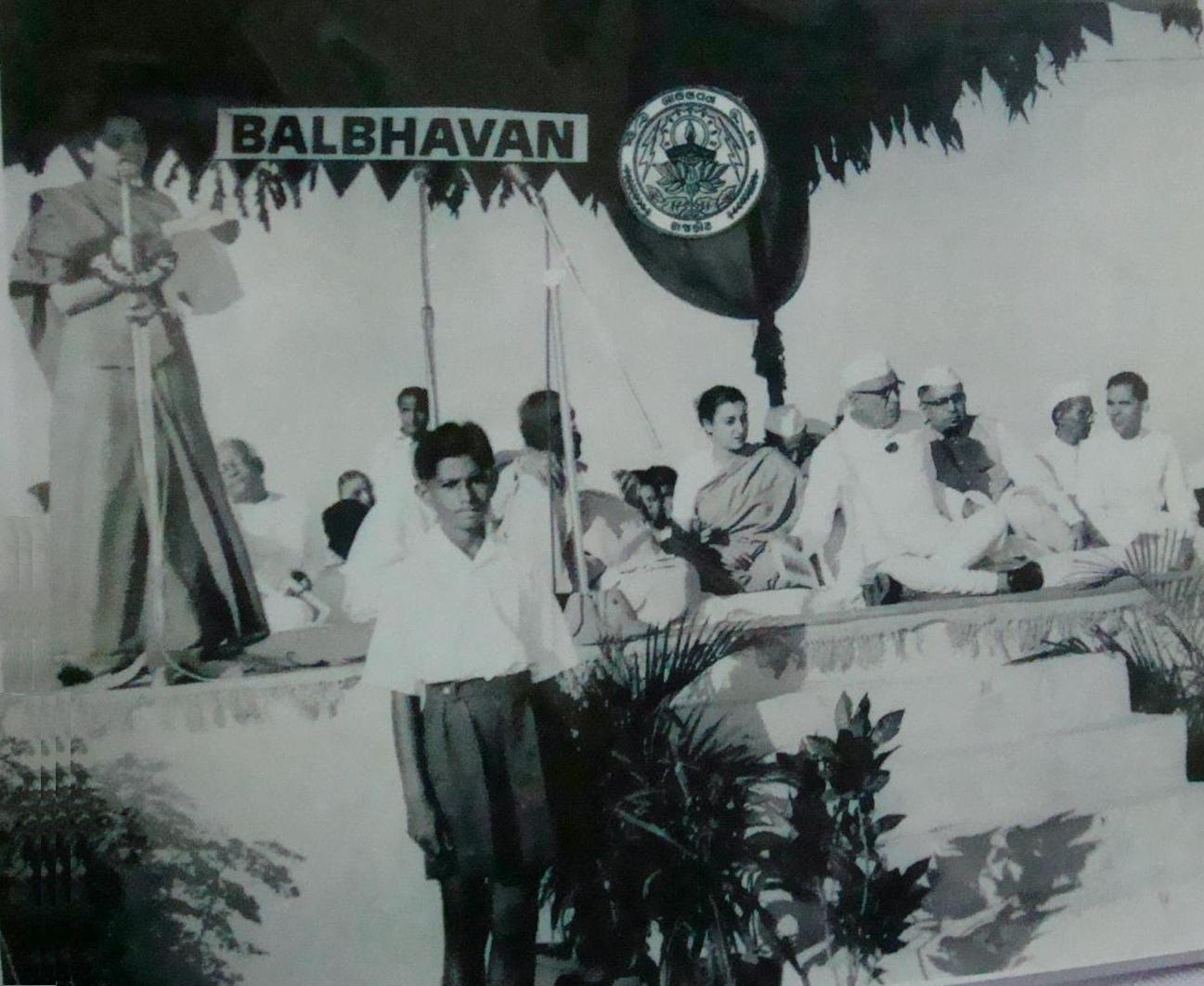
Establishing State Councils for Child Welfare
Vidyaben started the “Child Welfare” Movement in Gujarat by establishing the Saurashtra Council for Child Welfare in 1953 which was also the beginning of an exemplary child welfare movement outside Delhi, spreading across the country. She set up Child Welfare District Councils in all the districts of Saurashtra with training centres to train child welfare workers in all the districts. She also set up 100 Balwadis throughout Saurashtra providing services for 90% growth of the child to take place for children up to 6 years of age.
Bal Sahyog in Delhi
In 1956, when her husband transferred to New Delhi to join the Council of Ministers in the Cabinet of Pandit Nehru, Vidyaben brought her activism to Delhi. From 1956, she was actively associated for four decades in New Delhi with Bal Sahyog, a unique institution established for the rehabilitation of vagrant children. Vidyaben became President of Bal Sahyog in 1966 and remained its President for the next ten years. During this time with the help of her husband she started many innovative workshops for the children providing them with skills to make furniture and other handmade items. Having run a boat club at the Rajkot Bal Bhavan, she brought over a boat from Bal Bhavan in Rajkot all the way to the Bal Sahyog in Delhi and with it she started the first ever boat ride at Delhi's India Gate which now entertains thousands of people every week from all over Delhi and beyond.
Action against Child Labour
In Delhi she joined the Indian Council for Child Welfare (ICCW) in 1960 becoming its President for 12 years from 1976 to 1979, and 1985 to 1994.[4] She influenced the Government to start the Anganwadi Integrated Child Development Services (ICDS) programme in 1975. In the 1970s, considered as pioneering and revolutionary work, Vidyaben had already started working against child labour and persistently tried to influence legislation on child labour. Subsequently, under the Child Labour (Prohibition and Regulation) Act of 1986, she took steps to curb child labour in many areas of the country. Notable examples of her work include actions in factories giving hazardous jobs to children, such as the Firozabad glass factories and glass bangle works near Agra where children were found working even under conditions of temperatures near the coal-fired furnaces rising to 75 degree C and surface temperatures being 300 degrees C sometimes rising as high as 1200 degree C. Vidyaben first spoke to the parents and convinced them of the hazards for the children and with their permission took action to remove 500 children from the factories to start with; simultaneously she established centres for education and vocational training of these children. She took similar steps in factories producing locks in Aligarh and in the brass industry in Moradabad where children were employed in making brass vessels. Most notably, Vidyaben went to Sivakasi in Tamil Nadu in the 1980s to remove children from the fireworks industry, and the actions she took have had lasting impact whereby fewer and fewer children have been employed in producing fireworks in Sivakasi since 1986.
As President of ICCW, Vidyaben established a Holiday Home for children in Gurgaon where children removed from working in factories as well as other children from all over the country could come who would not otherwise have the resources to enjoy an educational and recreational holiday.
Vidyaben represented India at the United Nations International Year of the Child conference at Tashkent in 1979. She also attended International Conferences on children held at Tehran, Geneva and Birmingham, USA. She attended the 6th SAARC Summit in Colombo in 1991. She was Chairperson of the Christian Children’s Fund Advisory Board for 5 years. For three years between 1990-93, she was the President of the Delhi State Branch of the Bharat Scouts and Guides, an organisation devoted to the cause of children and national reconstruction.
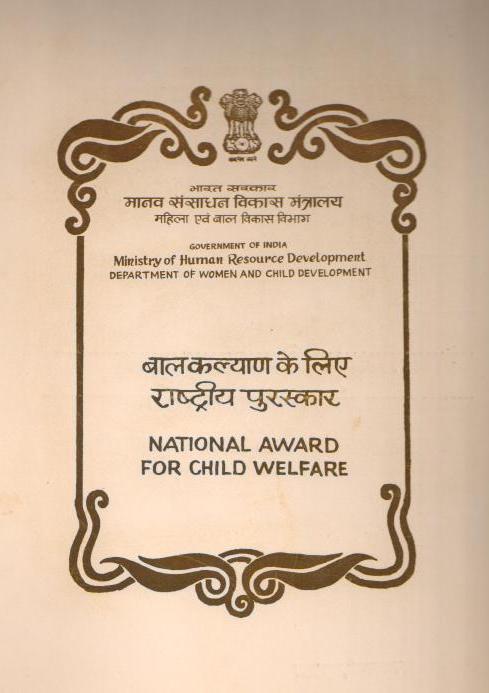
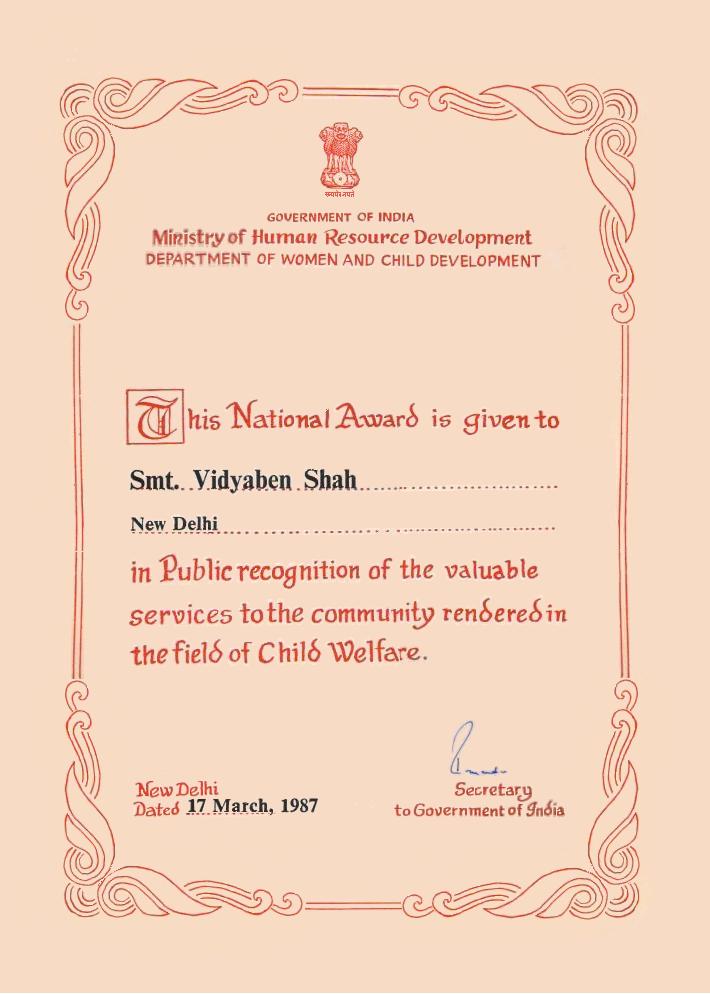
Institutional builder in education of children
Vidyaben has played the most pioneering role in the field of education of children. As President and active Trustee of the Delhi Gujarati Samaj for 40 years from 1958, she started the LNT Gujarat Senior Secondary School in Old Delhi, where over 1000 students from underprivileged backgrounds pay very nominal fees. Jawaharlal Nehru laid the foundation of the school in 1963.
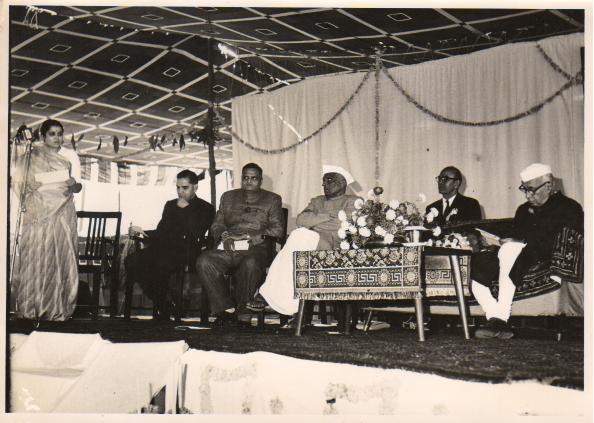
In 1956, the then Congress President Shri U N Dhebar and General Secretary of the All India Congress Committee (AICC) Shri Balwantrai Mehta invited Vidyaben for a meeting in Delhi saying that seeing her work for children in Saurashtra she should agree to help establish a school excelling in education for Gujarati as well as other children in Delhi. It had been agreed with Dhebarbhai and Balwantbhai that the school would be called
Vidyaben set up a school in 1970 at a Jehangirpuri slum in North Delhi. For several years, she was also a member of the Managing Committees of Modern School Barakhamba Road and Vasant Vihar, and of the Bharatiya Vidya Bhavan.
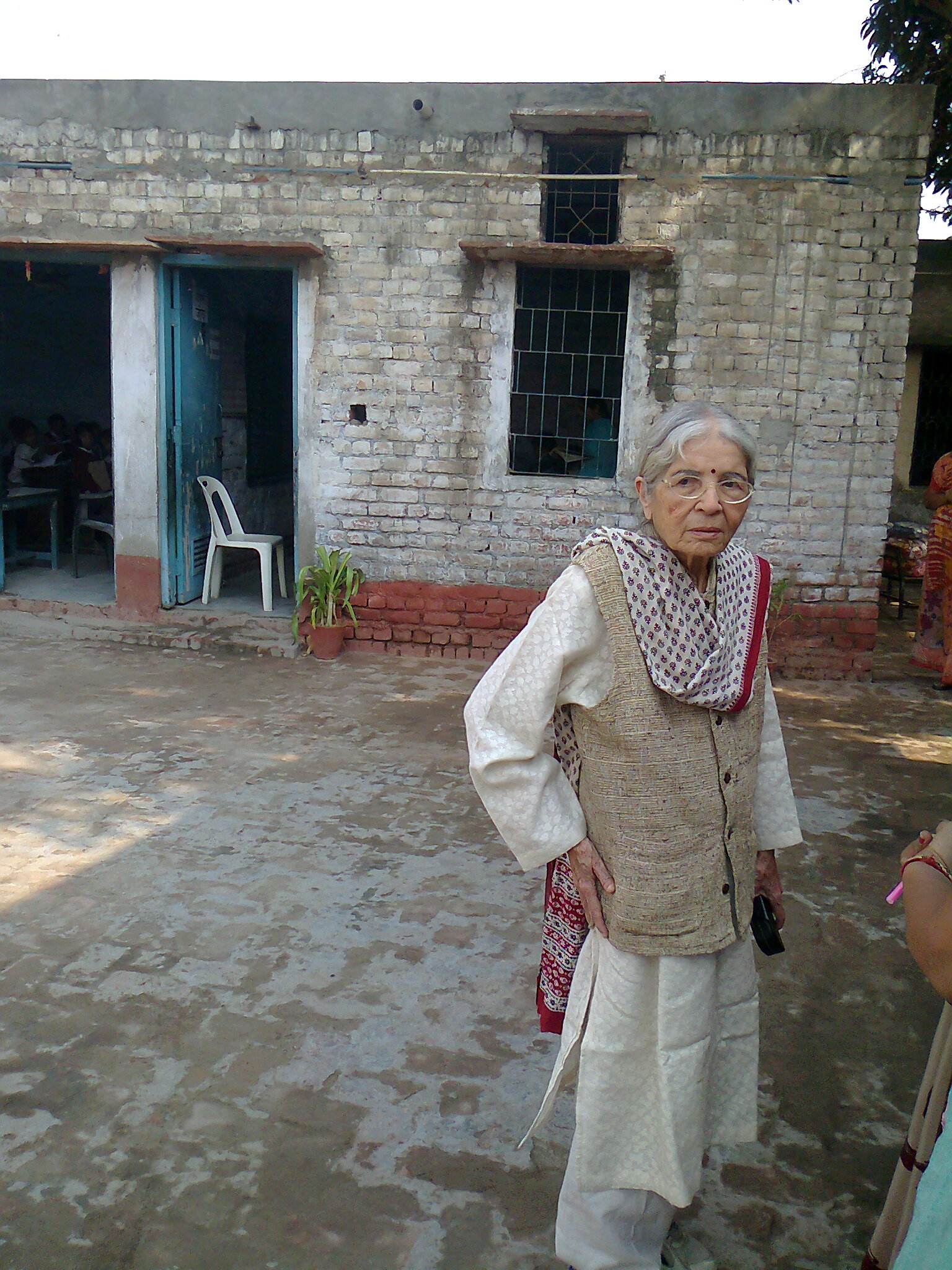
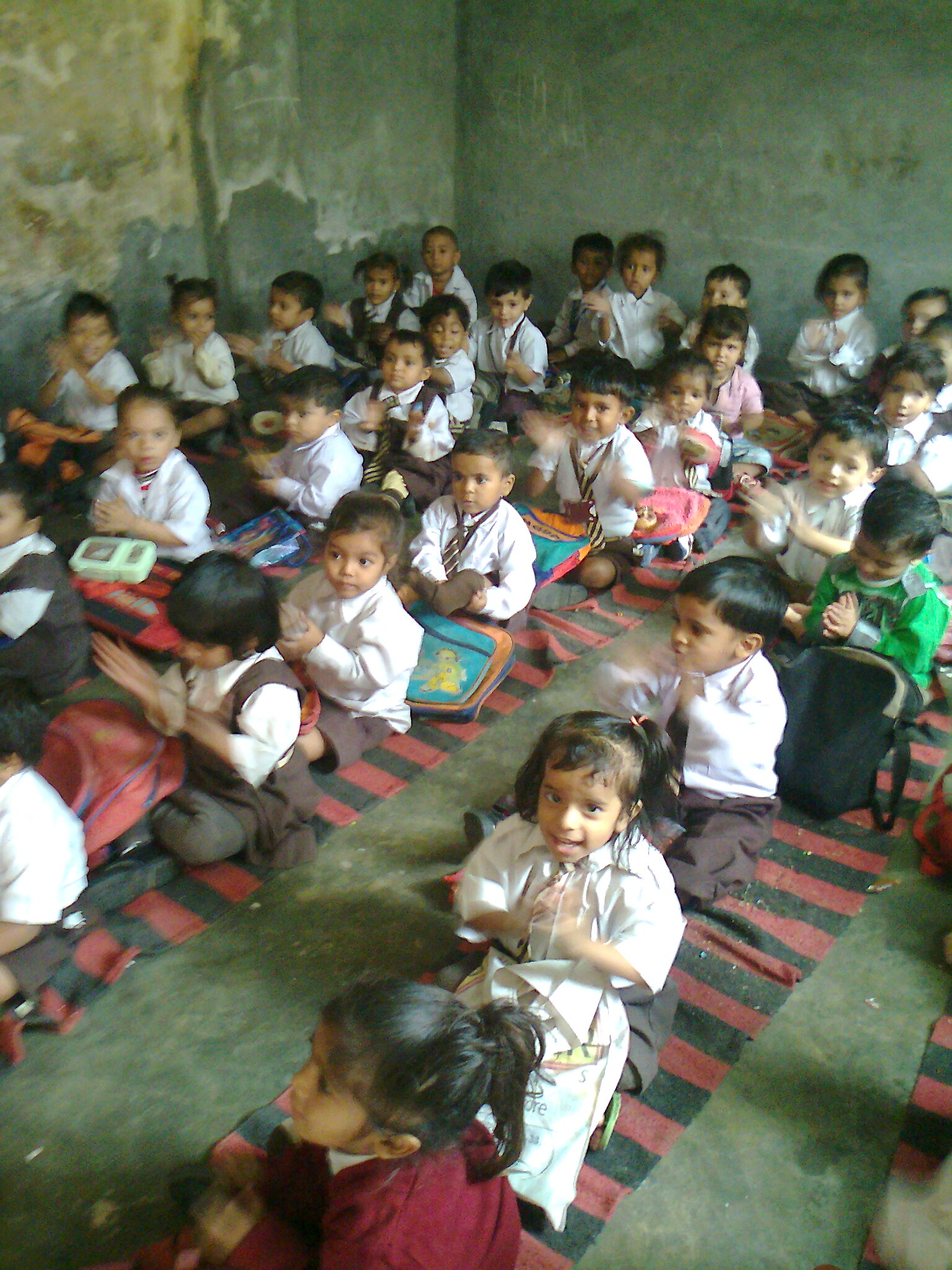
On becoming President of the New Delhi Municipal Council (NDMC) in 1975, Vidyaben was instrumental in starting a large number of projects for slum children and women. These projects include home for destitute children, home for abandoned children, hostels for working women, and the rehabilitation centre for the mentally challenged. In 1977 as President of NDMC, she initiated the concept of Navyug Schools that has proved a landmark in the educational field for gifted children from the economically weaker sections of society.
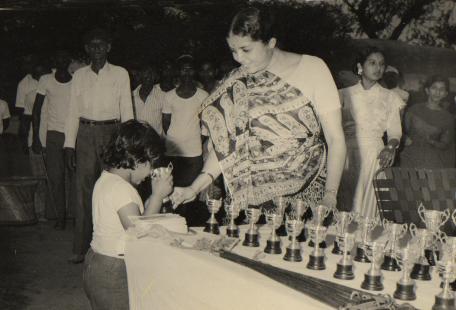
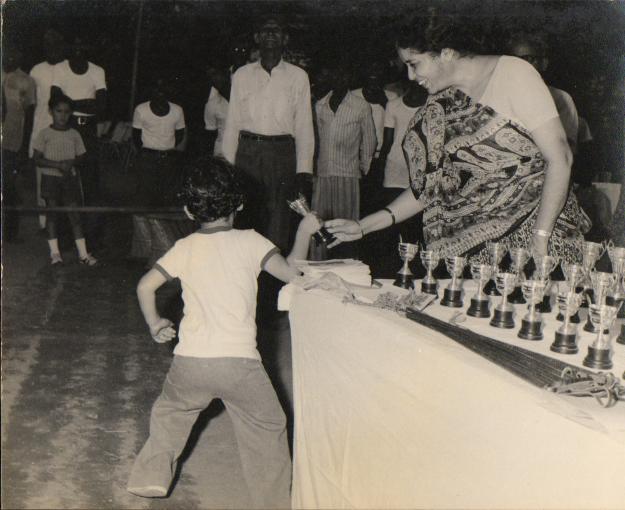
Women's Welfare
Vidyaben’s involvement with women’s issues dates back to her college days, where she set up the first craft centre for underprivileged women in Saurashtra. While studying in Rajkot and Bhavnagar, she was already an active social worker. In Bhavnagar she was staying in a women's hostel and had taken on the task of looking after the welfare of young girls who came from East Africa to study in India. She would take care of them when they were ill, and provided them extra food as meals in the hostel were meagre. In Rajkot in the 1950s she had started an organisation called Refugee Women's Centre (Mahila Mandal) in Sadar for the welfare of refugee women and girls who were displaced or rendered homeless following Partition of India.
The Government of India appointed her as the Chairperson of the Central Social Welfare Board (CSWB) in 1995 for three years, during which time she initiated many path-breaking programmes to revive this premier institution to its old glory. A brainchild of Pandit Jawaharlal Nehru and Durgabai Deshmukh, CSWB was set up by an Act of Indian Parliament in August 1953. During her tenure, Vidyaben expanded the programmes of Family Counselling Centres (FCC), Working Women’s Hostels (WWH), Vocational Training Programmes and Creches. She set targets of providing support for at least one FCC and one WWH per district in the country. In 1995, as a member of the official Indian delegation, she attended the Fourth World Conference on Women held at Beijing, China. She also represented India at the 42nd Meeting of the United Nations Commission on the Status of Women held in New York in 1998.
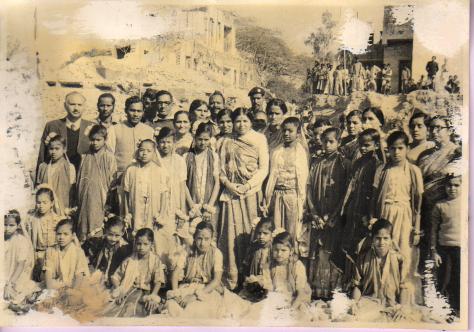
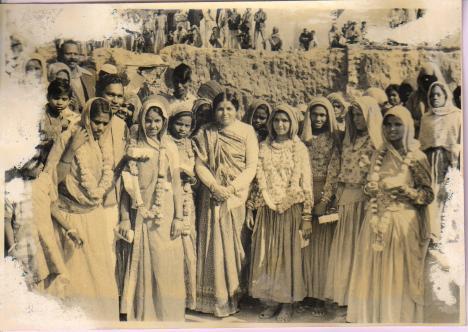
National Family Planning Programme
While being immensely compassionate and wanting justice for her fellow beings, Vidyaben's style of working has also always been highly professional. In the mid 1970s, Vidyaben did some sterling work helping men and women who had large families and who wanted to plan their family. The work carried out by Vidyaben was within a National Programme and her work was of the kind which any society would be proud of, as many helpless men and women either did not know how to plan a family or were shy to raise the issue by themselves and Vidyaben was personally there providing solutions and support aided by a technical team of experts. By the 1970s, Vidyaben had had more than thirty years of social work experience with families. She had created and managed numerous women's organisations. She had been a Magistrate in the Juvenile Courts for eight years and had engaged with men and women struggling to raise children in large and deprived families.
Quality of life and justice for the poor were uppermost in her heart and mind when she took up the work for the National Programme for family planning. During the meetings she had with men and women wanting to plan a family or making people aware of the benefits and procedures of planning a family, she always had a qualified health worker accompanying her to explain to people the health consequences of family planning. At one point a commission called the Shah Commission was set up to inquire into, among other things, the functioning of this highly sensitive but later politicised Family Planning programme. The Shah Commission fully exonerated Vidyaben of baseless accusations levelled against her by some negatively motivated vested interests. The people she helped were from large and underprivileged families and in most cases it was men who opted to undergo family planning procedures. Once her team had become known, it was not surprising that many people came to her of their own accord asking for solutions to problems they faced with the prospect of having too large a family that they could not afford to raise and for whom they would not be able to provide a good quality life. Even in the years following the family planning programme, men and women came to Vidyaben to thank her for making their lives better. Today the impact of family planning efforts made in that era can be seen clearly, as the population growth rate saw its first reduction in 1977 soon after various initiatives were implemented in the National Family Planning programme. The population growth rate has been steadily declining since, from being at its peak at 2.3% in 1977 to 1.3% in 2012; and birth rate from being 5 per woman in 1977 to being 2.5 per woman in 2012.[5]
Elderly CareVidyaben has been working actively in city wide and locality level initiatives for the care of the elderly. Since the 1990s, she continues to be an active President of the Senior Citizens Service Forum which is a member of the State Council for Senior Citizens as well as a member of the National Council for Older Persons set up by the Indian Ministry of Social Justice and Empowerment. Among other activities, the Senior Citizens Service Forum runs a day care centre for senior citizens and conducts adult education classes for women. In 2007 Vidyaben was invited to the Parliamentary Standing Committee on Social Justice and Empowerment to examine the “Maintenance and Welfare of Parents and Senior Citizens Bill 2007”. On a daily basis a stream of elderly men and women continue to come to her to ask for solutions to their problems with their children or their homes or support structures or with infrastructure facilities providing essential amenities. Vidyaben is seen to welcome them into her home with a smile and giving them practical solutions as well as comfort through words and generous deeds.
Work with Senior Leaders and StatesmenVidyaben worked extensively with a number of leaders and statesmen in India and remained in close contact with them over the decades influencing government policies and programmes in the country.
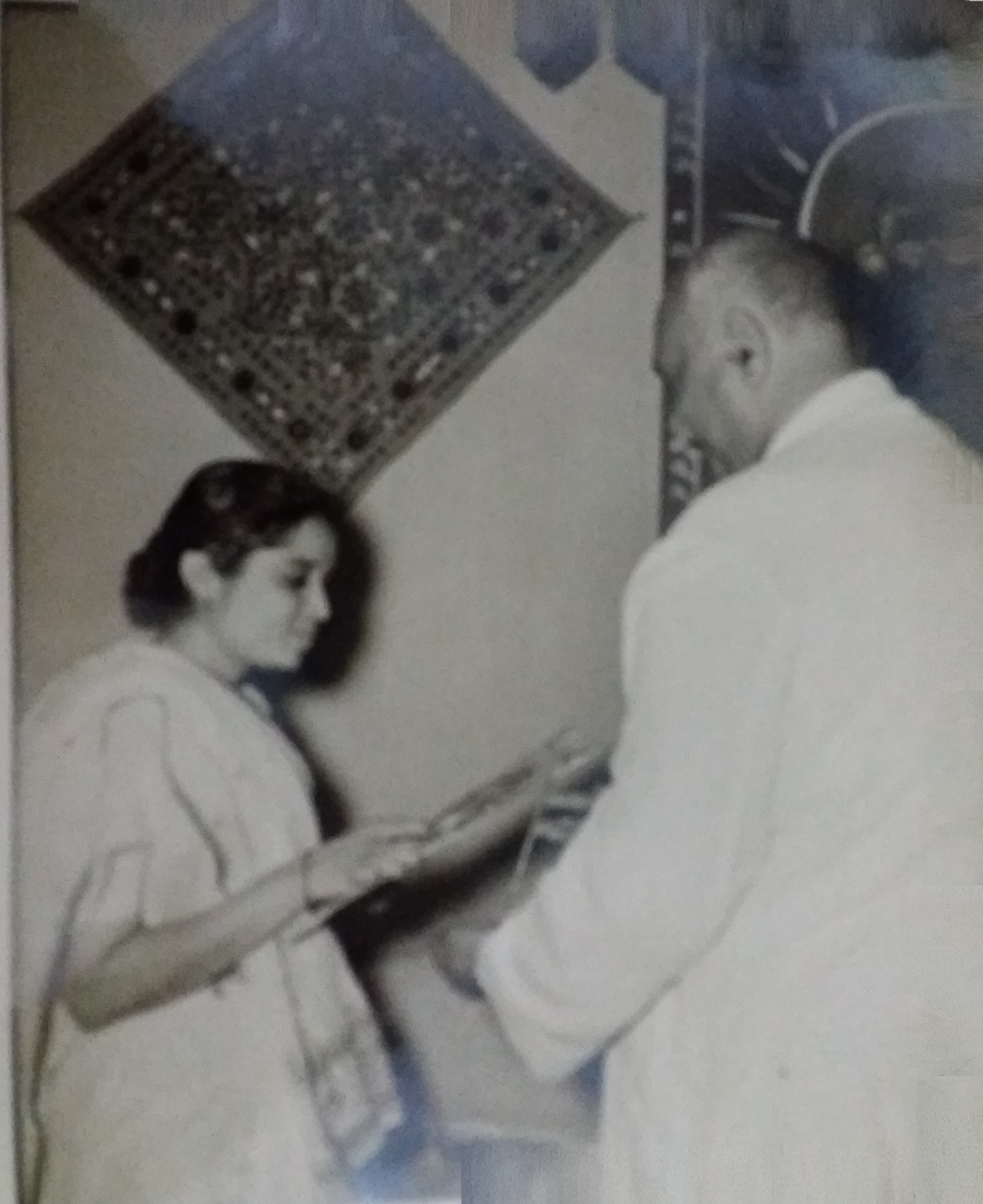
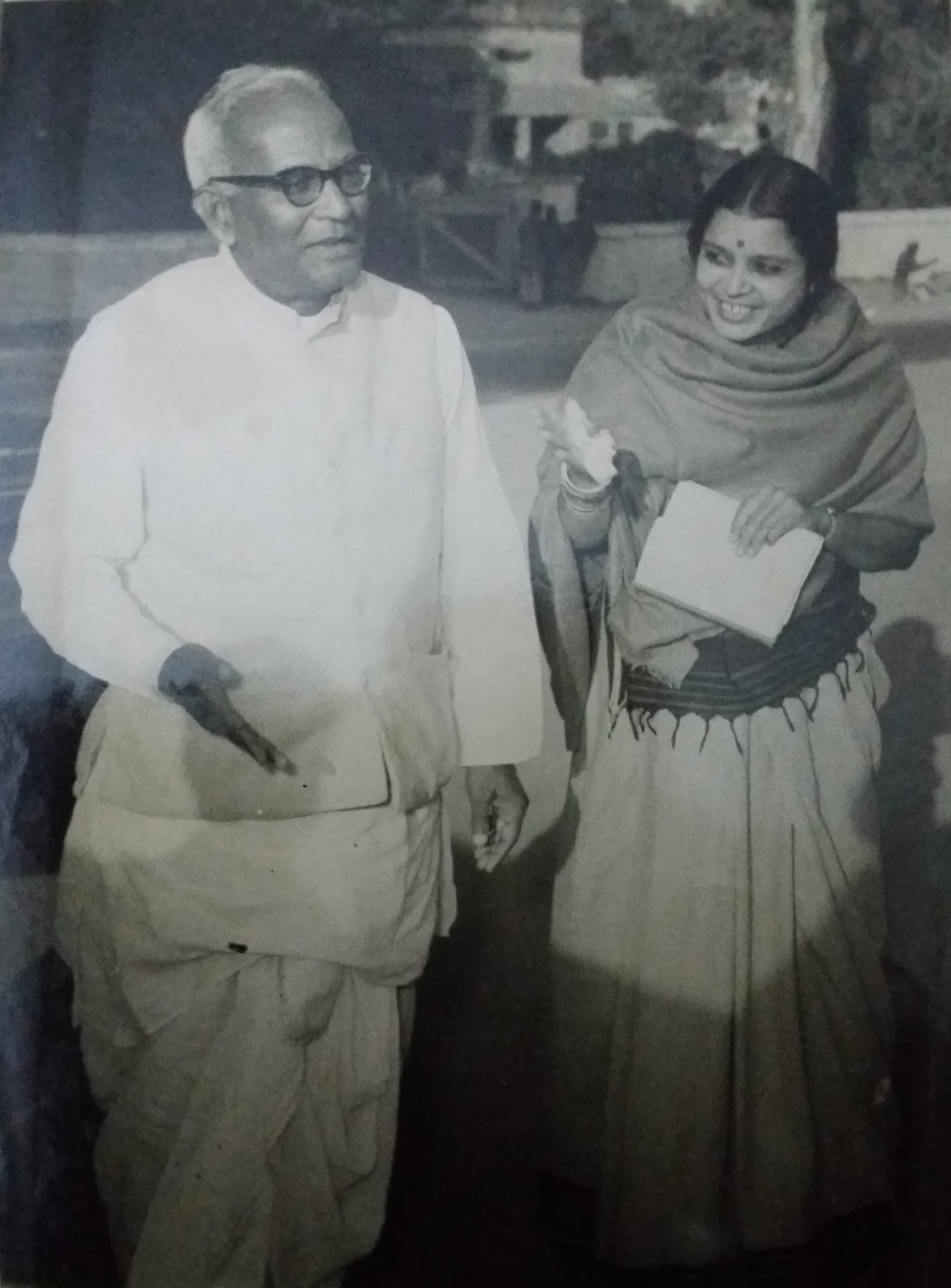
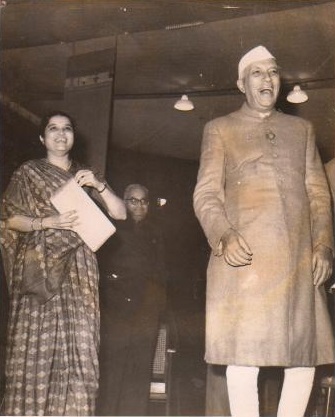
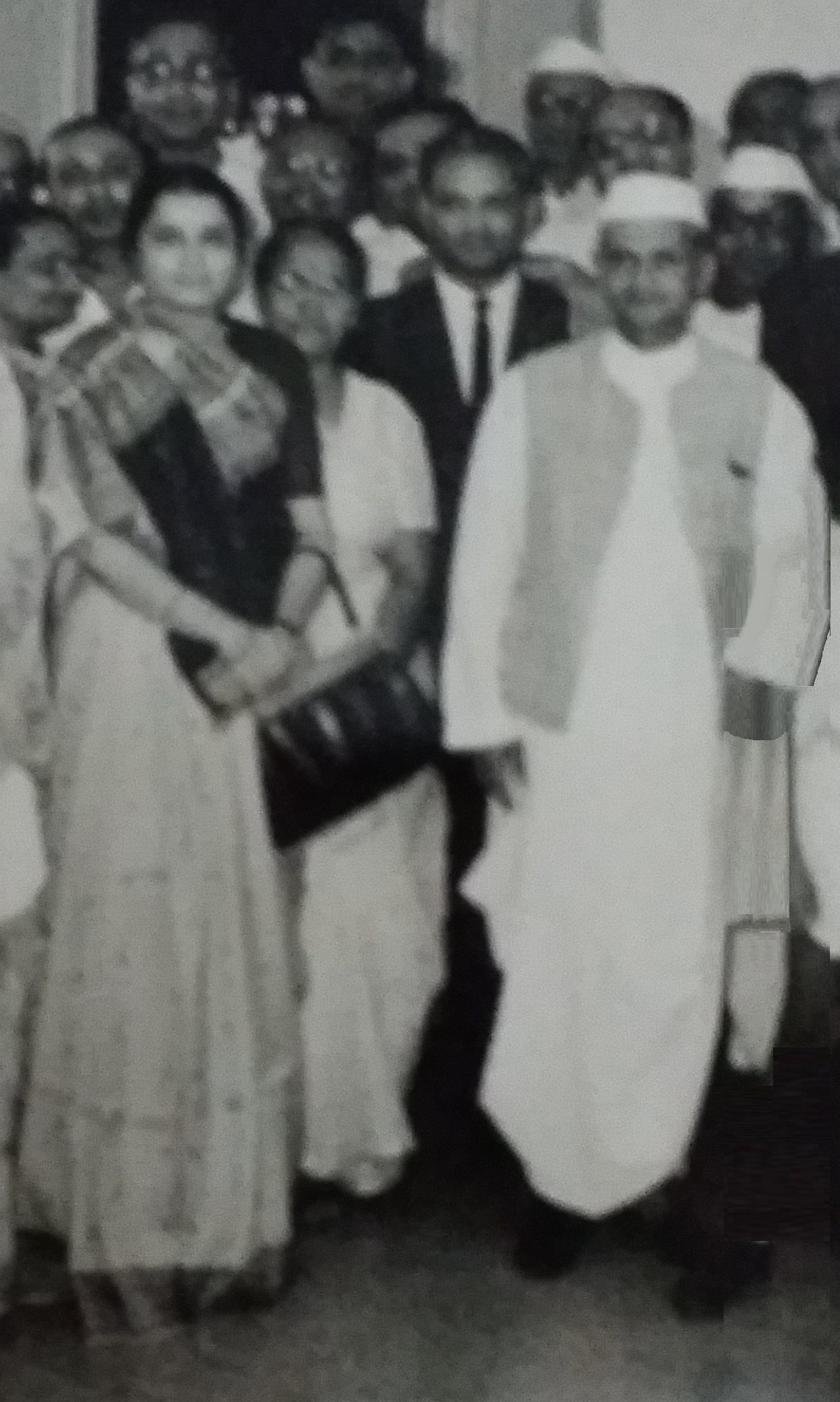
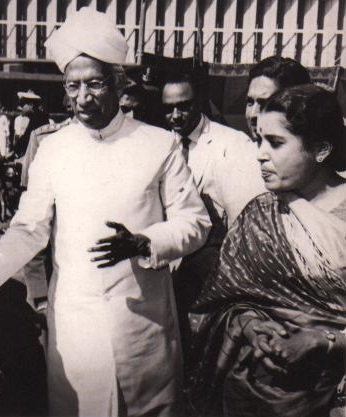

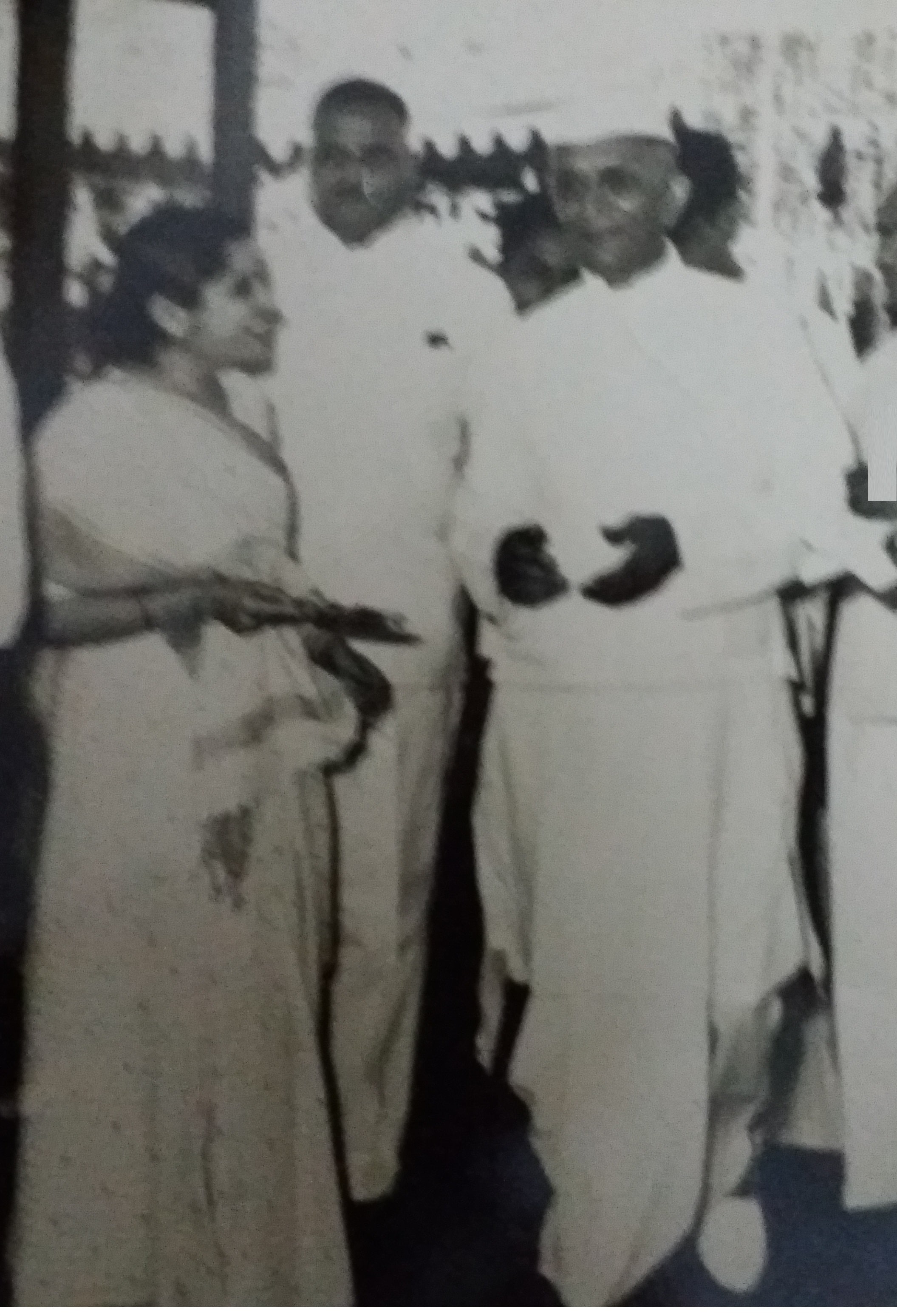
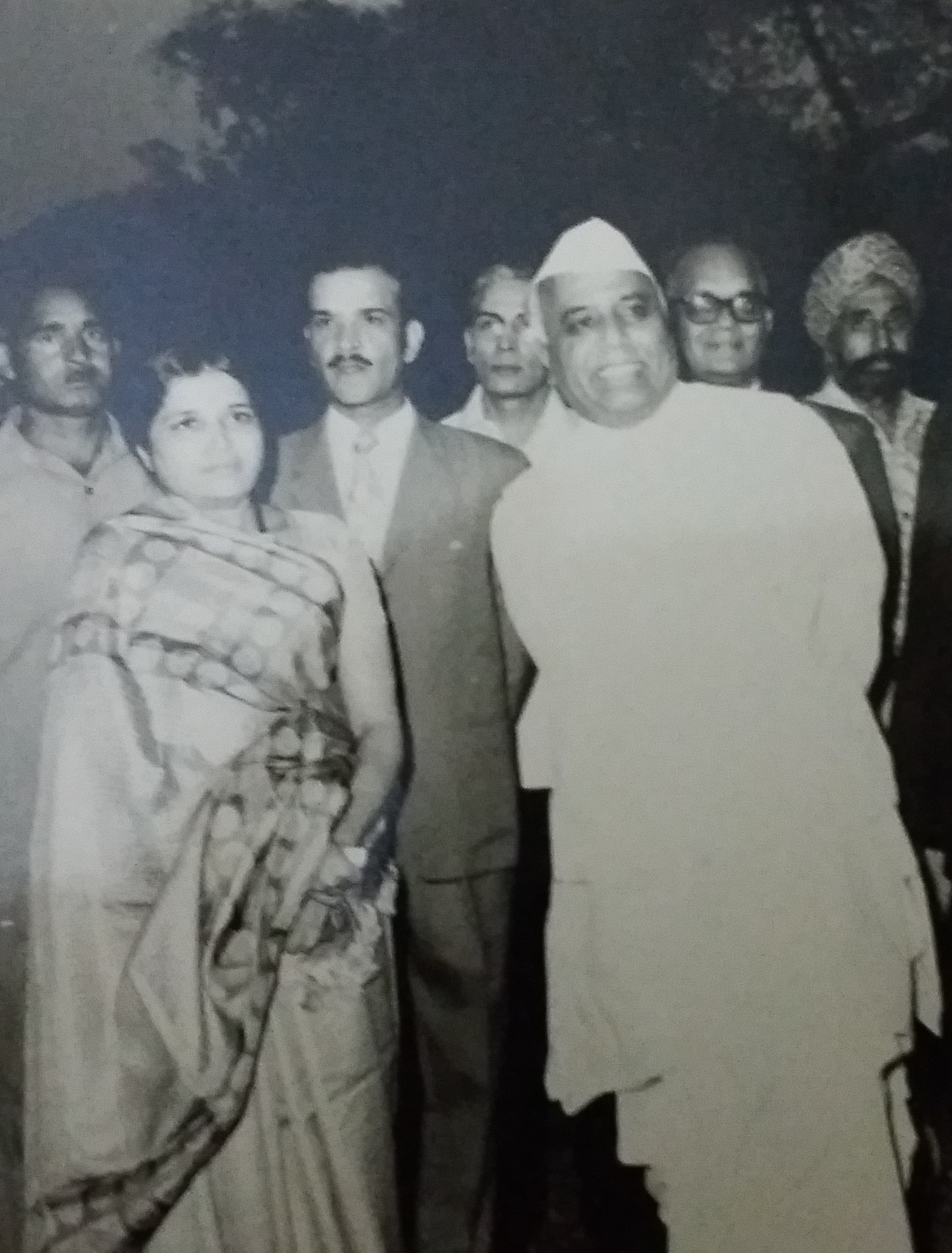
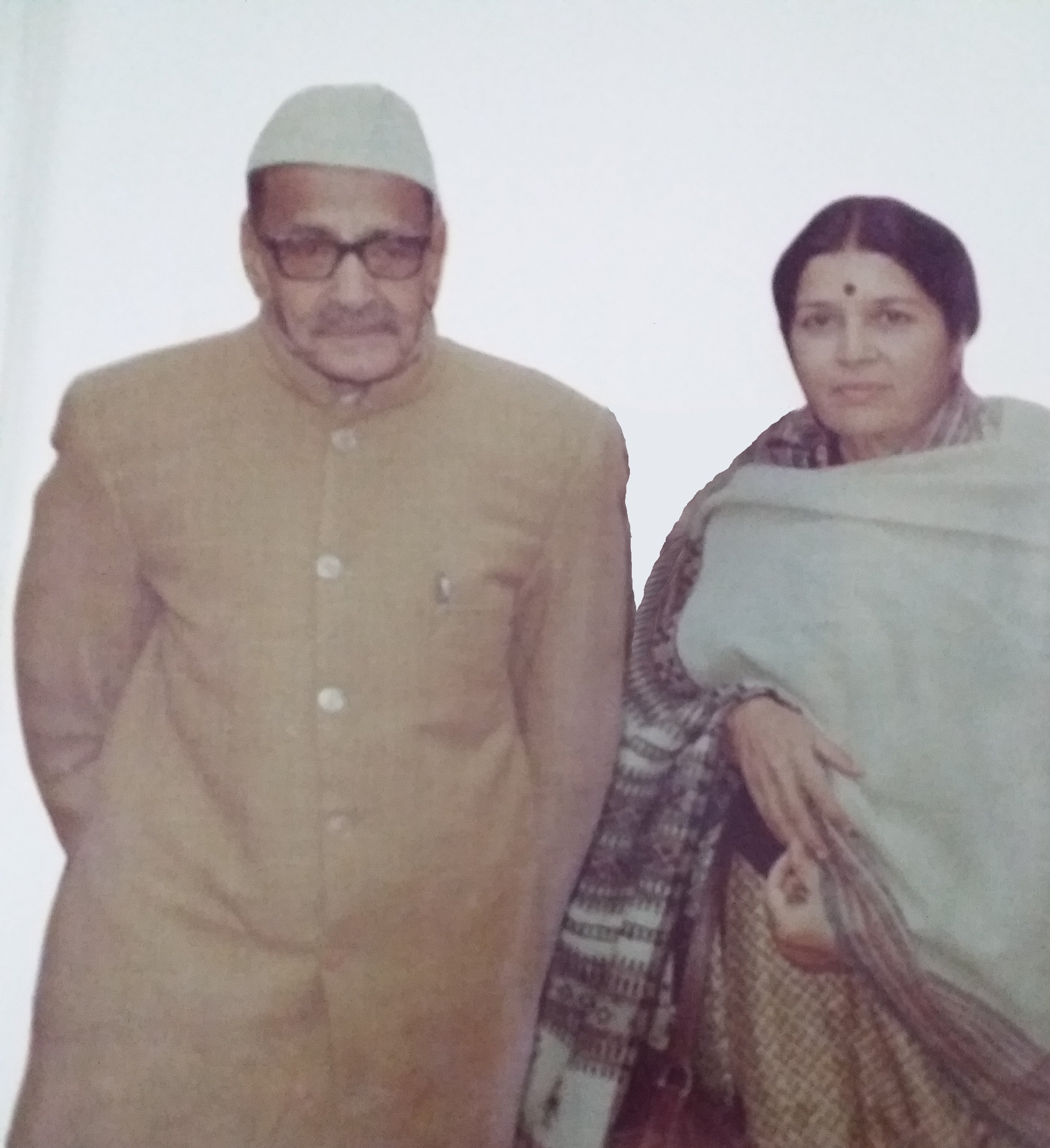
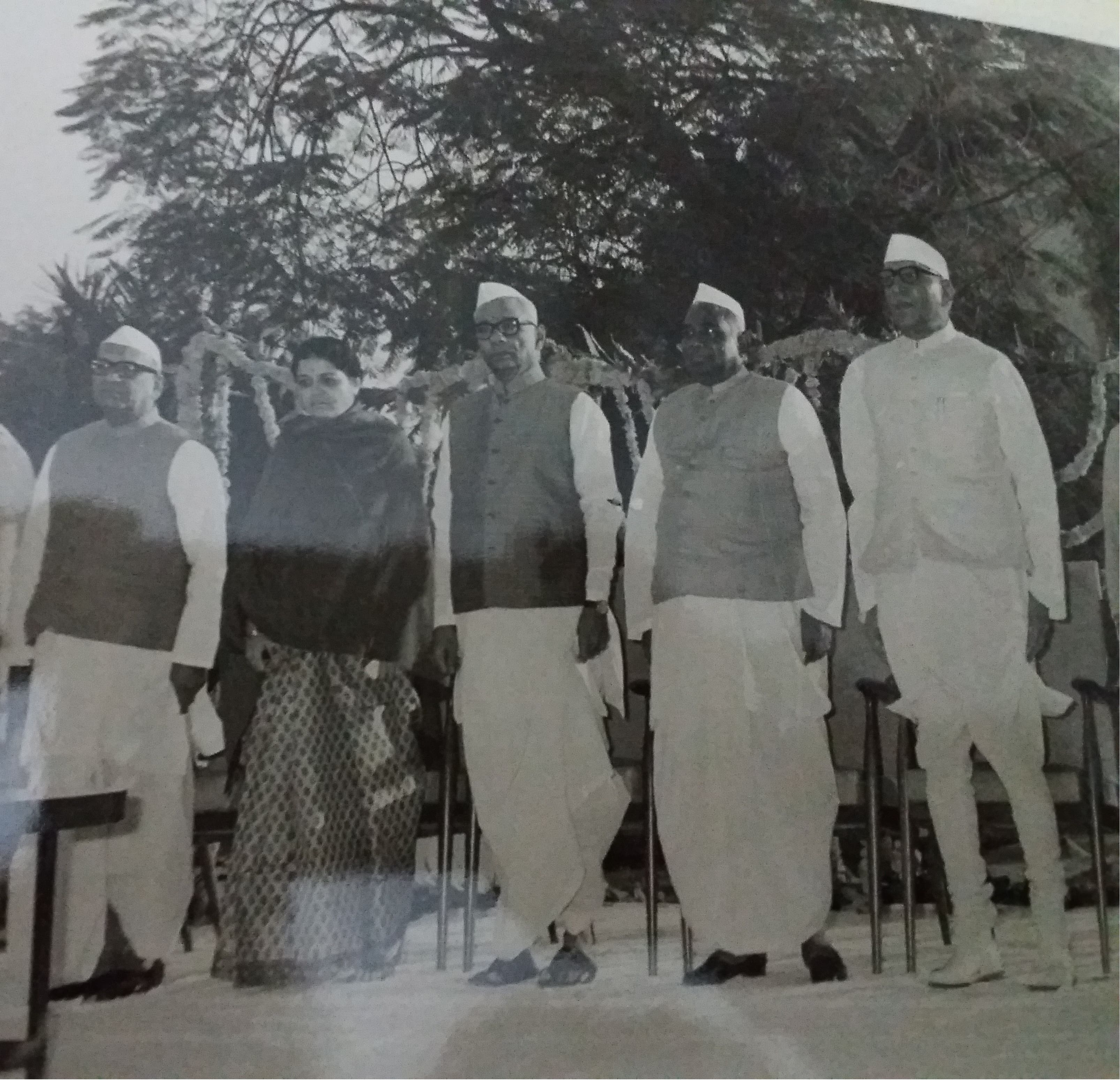

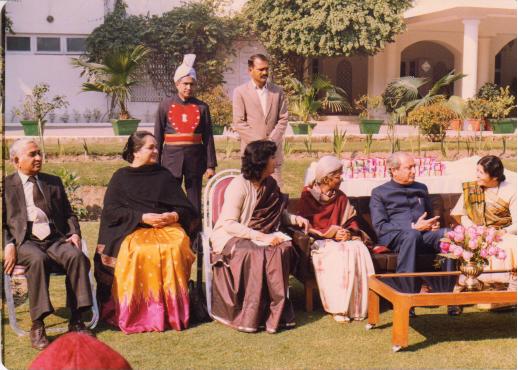
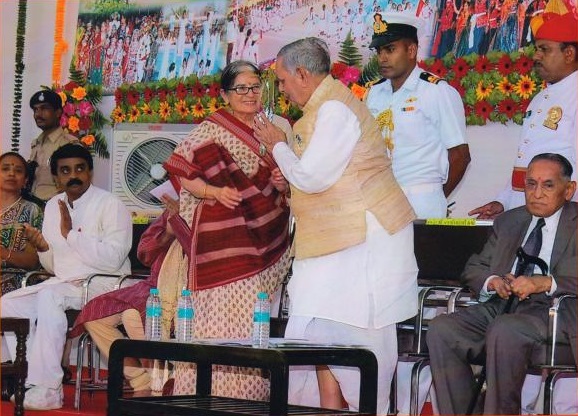
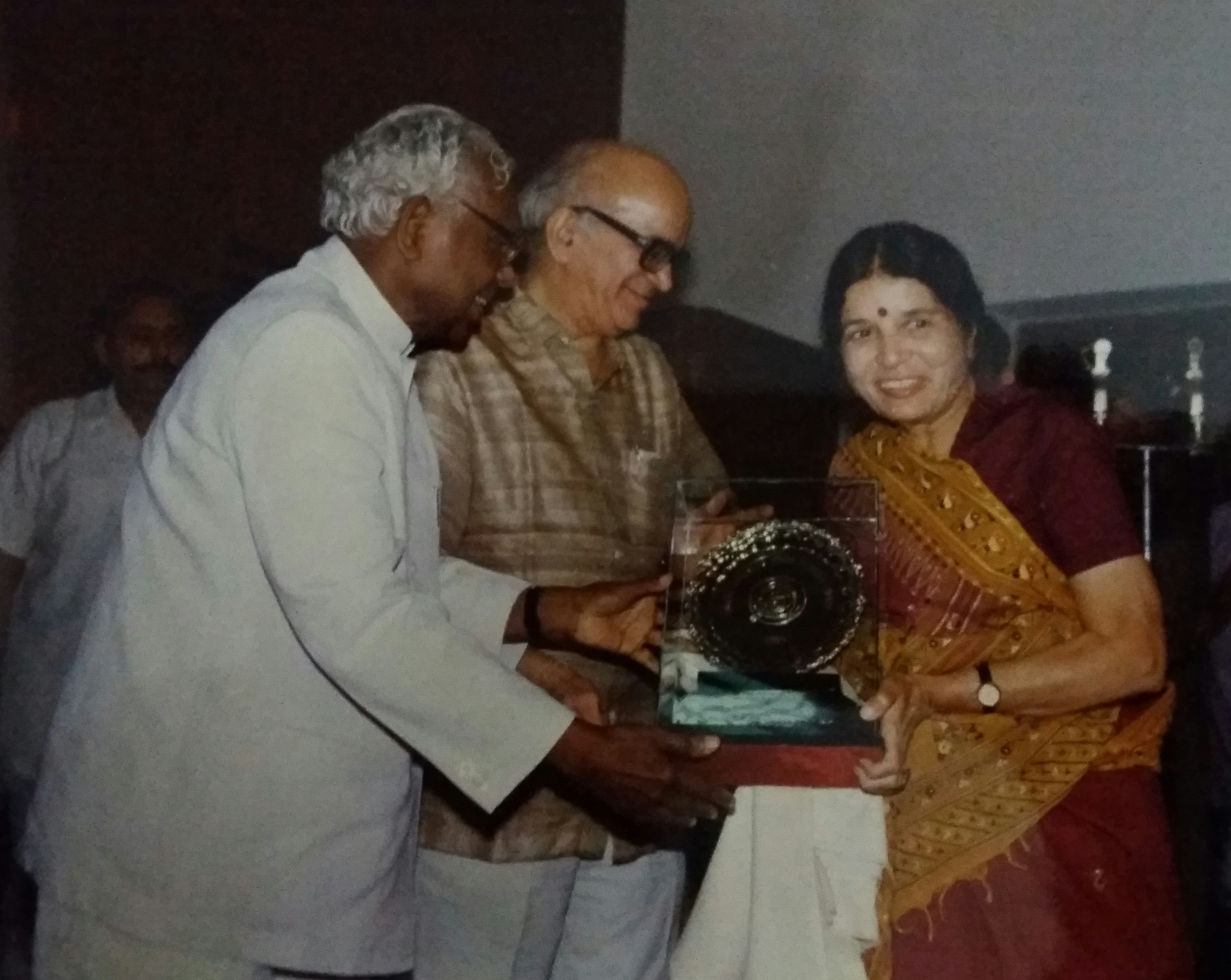
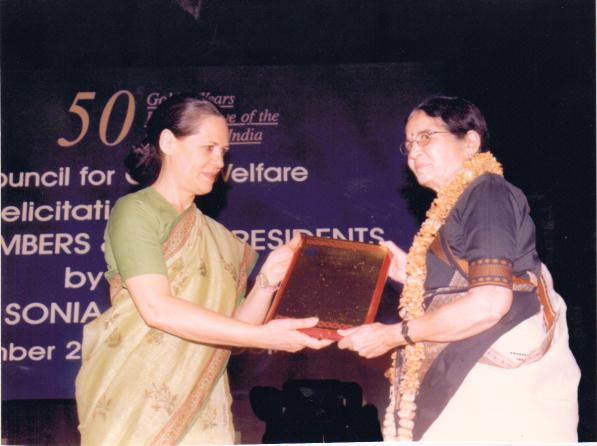
In 1992, Vidyaben was awarded the Padma Shri by President of India Shri R Venkataraman for her long tenure of social and economic welfare work.
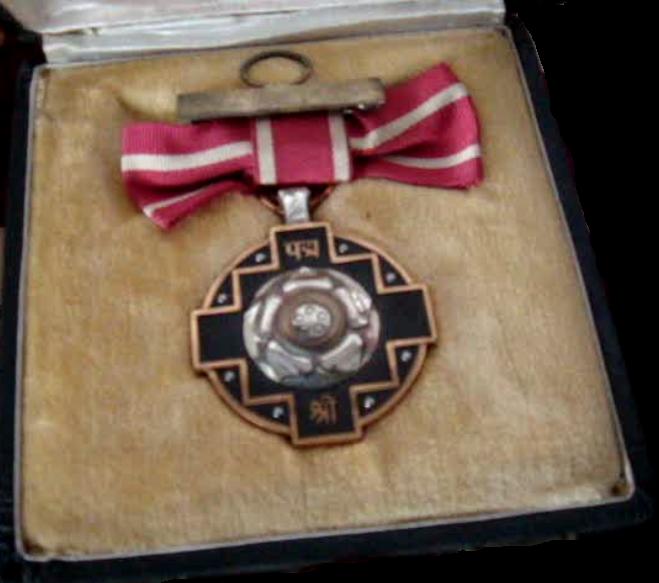
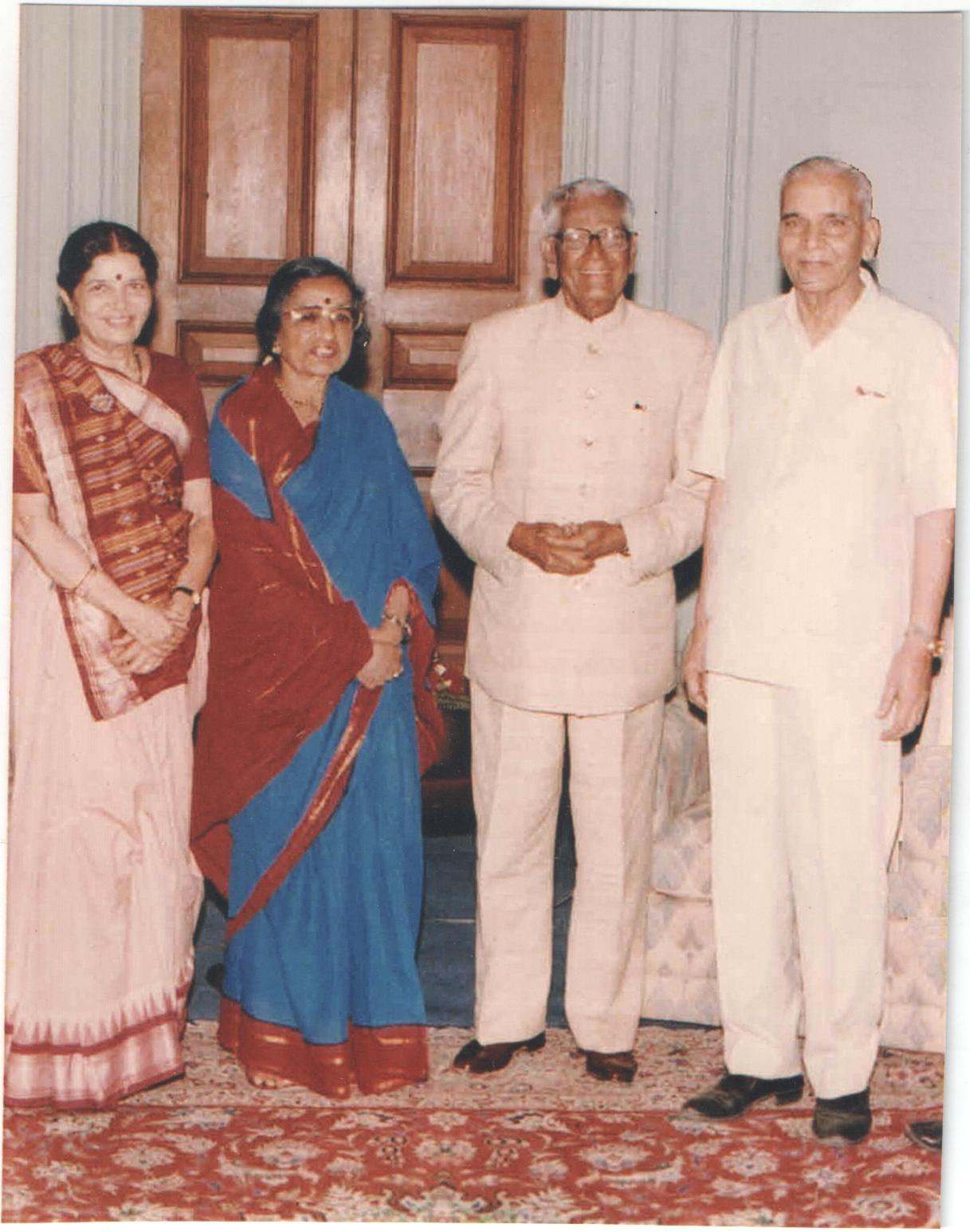
Apart from the Padma Shri by the Government of India in 1992, Vidyaben has received numerous honours for her distinguished work in public service and welfare programmes.
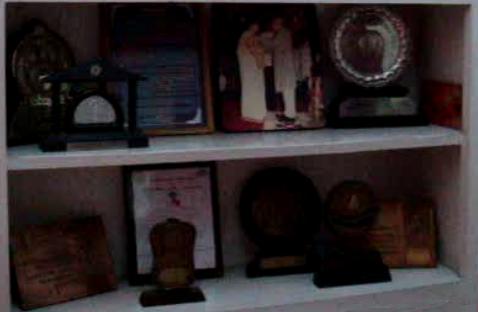
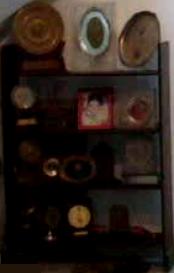
List of Awards
1976 Best Social Worker Award of the Federation of Organisations Working for Children in India
1986 The National Award of the Government of India for outstanding services in the field of Child Welfare
1987 Bal Mitra Award by Nehru Bal Samiti for distinguished work in educational and social projects towards welfare of children
1988 Bal Sahyog Award from United Children's Movement in recognition of outstanding services in welfare of children in India
1989 Nehru Fellow Award for outstanding achievements in field of child welfare activities
1990 Silver Elephant Award, the highest national award of the Scouts and Guides Movement awarded by the President of India
1992 Padma Shri awarded by Government of India; award presented by Shri R Venkataraman, President of India
1994 Kakasaheb Gadgil National Award for distinguished social service presented by Shri K R Narayanan, Vice President of India
1998 Samaj Sewa Shiromani Award from the Family Planning Association of India for distinguished services in family planning
1999 Radha Raman Award for outstanding contribution to Delhi and its people in the field of Child Welfare and Social Work
2000 Vishwa Gurjari Award for significant contribution in the field of women’s development, educational enhancement and welfare
2000 Woman of the Century (Shatabdi Mahila) Award for Social Work spanning the entire lifetime
2001 The Millennium Award from the All India Kitchen Garden Association for contributing to a green and clean environment
2001 Honoured by the Swatantrata Andolan Yadgar Samiti for valuable contribution to the freedom struggle
2002 Plaque of Honour of Indian Council for Child Welfare (ICCW) for "Fifty Golden Years of Service to the Children of India"
2005 Delhi Hindi Sahitya Sammelan Evam Chitra Kala Sangam Award on the International Women’s Day
2006 Kalpana Chawla Excellence Award for excellence in the field of social service
2007 Freedom Fighter Award by Govt of India at August Kranti Maidan, Mumbai, commemorating 65 yrs of Quit India Movement
2007 Samman Patra (Salutation) as Freedom Fighter on the 150th Anniversary of the First War of Indian Independence
2007 Distinguished Senior Citizen Award of Shree Delhi Gujarati Samaj
2008 Freedom Fighter Award by the President of India at Rashtrapati Bhavan
2009 National Honour (Samman) as "Epitome of Empowerment" given by Guild for Service to celebrate Women's Day
2011 Honoured by Age-Care India for "dedication, contribution and welfare for the elders" to celebrate Elder's Day
2011 National Award for "Lifetime Achievements and Contributions", presented by Social Justice Minister, Govt of India
2013 Vishishtha Vyakti Gujarat Gaurav Award given by Akhil Bharat Gujarati Samaj, Ranchi, Jharkhand
2013 B R Ambedkar Award for Social Work, Delhi
2014 The "Maharani Ratna" award presented by the Residential Welfare Association of the residential colony
2015 The "Shah Ratna" award presented by the Ichhaben Mansukhlal Shah family (Vidyaben's in-laws) for ideal guide to the family
2016 Honoured by Murari Bapu for dedicated social work at a function at the Mahatma Gandhi Sankritik Kendra, Delhi
2016 Honoured by the Canara Bank of India for lifelong work from freedom struggle to elderly care in India
- ^ Vidyaben the Founder of Bal Bhavan V J Mehta on twitter
- ^ Trustees of the Rajkot Bal Bhavan Bal Bhavan, Rajkot website
- ^ The New Bal Bhavan at Rajkot Bal Bhavan, Rajkot website
- ^ Presidents of ICCW ICCW website
- ^ Population birth and growth rates in India Open Government Data, India
CLICK BELOW TO VIEW OTHER PAGES ON VIDYABEN SHAH & MANUBHAI SHAH
Culture, Civics, Institutions What people said